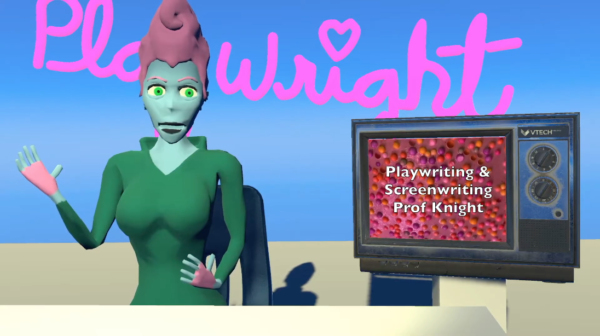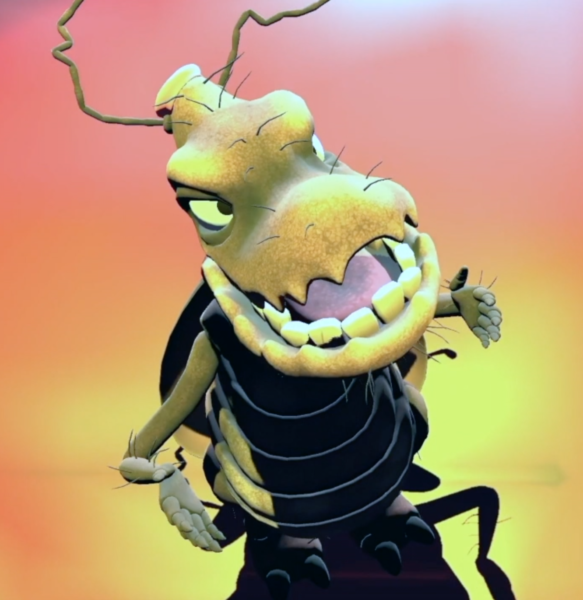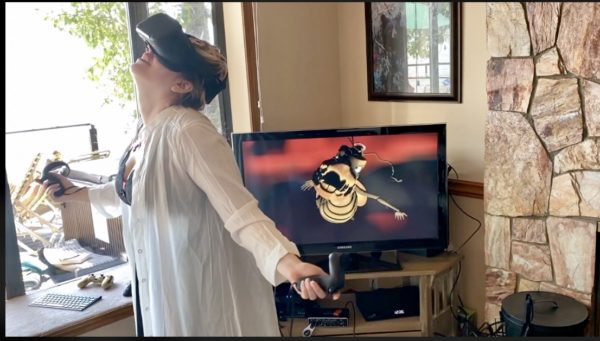One of Vanderbilt’s instructors now has blue skin, purple hair and literally teaches in a different dimension.
Playwright Krista Knight is taking a creative twist on COVID-19 protocols by teaching her Introduction to Writing for Stage and Screen course in an online, virtual reality world.
“As an instructor I often teach in character, and I wanted to lean in to the possibilities of the digital form,” said Knight, a writer in residence in the College of Arts and Science. “I thought by creating an avatar, I’m encouraging my students to think elastically about what constitutes a stage and in what forms we can speak to an audience.”

Adaptation leads to attention
The COVID-19 pandemic led to another adaptation for Knight when her newest play, Crush, was accepted into a theatre festival in New York City, but then the festival performances were canceled. Knight and her creative partner, Barry Brinegar, decided to turn the one-man stage play into a series of animated virtual reality shorts airing on YouTube starring a cantankerous cockroach.
The six micro-plays moved from a stage to YouTube and garnered the attention of The New York Times, American Theatre Magazine and other arts outlets.
“Adapting the play was prompted by COVID, but it was also something that felt very organic, because in the theatre world we often have to pivot and lean in to our situation,” Knight said.

Virtual reality
Knight used an actor for the voice of the cockroach. Then she and her partner acted out the cockroach’s movements with avatars they created through an online virtual reality platform called VR Chat, which was co-founded by Vanderbilt alumnus Graham Gaylor, BS’14.
“The process of actually animating the actor movement was probably the most intimate relationship I’ve ever had with a character as a playwright,” Knight said.

Keep creating

Knight said that the pandemic has taught her there will always be challenging circumstances that arise in life and creativity can often be found in those moments. She’s using those lessons for the writing classes she’s teaching as well. This semester, instead of an in-person performance, her students will write and create short pieces to be livestreamed online.
“This is another way of showing students how the show still goes on,” she said.